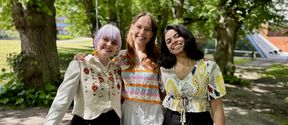Aalto University Summer School
Aalto University Summer School offers high quality academic summer courses and programs at Aalto University.
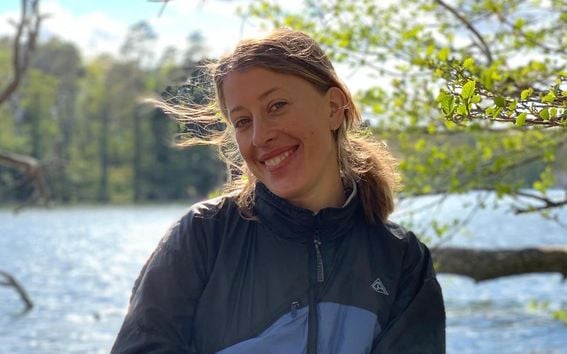
Nordic Biomaterials with CHEMARTS was the first summer course with international students that could take place on-site at Aalto University campus since the start of the corona pandemic. One of the students was Carolina Weigl, a master student in industrial and experience design at Konstfack in Stockholm.
While she is not studying she loves to hang out in nature (as you can see) and exercise through improvised dancing.
“Studying design was a natural choice for me since I’ve always loved to be creative in practical and physical ways by creating with my hands,” says Carolina.
Nordic Biomaterials with CHEMARTS inspires students to combine design and material science for new cellulose-driven concepts and ideas. During the course, students familiarise themselves with practice-based material research, experience how interdisciplinary material research happens in practice, and explore how raw materials could be turned into innovative business ideas in the context of the circular economy through lectures, excursions and experimenting in the laboratories.
I took a short course in biomaterials at Konstfack where we were allowed to experiment and play around with biomaterials. The course had a reference to the CHEMARTS cookbook and encouraged us students to get acquainted with the content of the book. CHEMARTS is a long-term strategic collaboration between two Aalto University schools, the School of Chemical Engineering (CHEM) and the School of Arts, Design and Architecture (ARTS). The schools merged their forces with the aim to invent new ways to harness wood and cellulose. The idea is to research the performance and design of advanced cellulosic materials for innovative uses.
What was your favorite part of the course?
I loved the excursion to Verla, a UNESCO World Heritage site with a paper mill established in 1872. The mill, today a museum, produced groundwood pulp and white wood pulp board, and during the visit, we got to follow the technological process from timber cutting and pulp production to board drying, sorting and packing.
Luckily, many have already understood the potential of biomaterials replacing fuel-based materials, and I really hope to see a future where biomaterials are utilised and preserved in more creative ways within other industries than for example the forest industry.
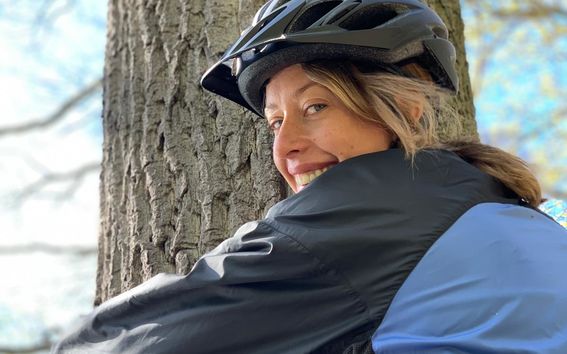
It’s difficult to choose certain ways of communicating these issues – I’d rather say that everyone should embody the physical experience of creating and experimenting with different materials in order to actually understand that there are alternatives to fuel-based materials. Anyone that works with some kind of production or design should try to re-create some of their products in completely biodegradable materials.
This is a topic that everyone should learn more about – students, working professionals within the field, artists and decision-makers that are curious to learn more about how we can decrease the use of existing raw materials and global consumption overall.
Keep an open mind and be prepared to re-evaluate your thoughts and knowledge about our existing materials. It’s also a small bonus if you can think of any special materials you want to experiment and work with and bring them with you to the course beforehand.
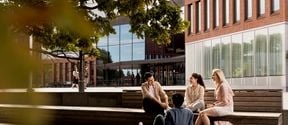
Aalto University Summer School offers high quality academic summer courses and programs at Aalto University.
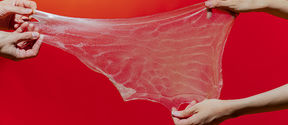
CHEMARTS website


